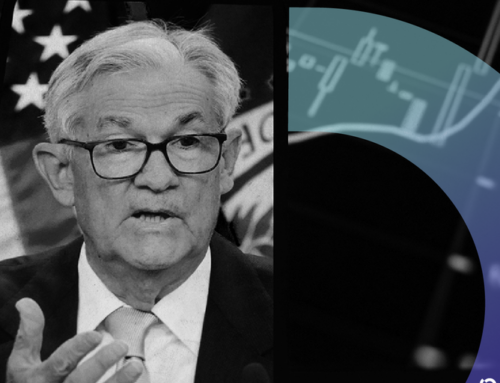A Father of Environmental Justice Rebukes Sierra Club, Ben Jealous Over Treatment of Black
April 18, 2025
SHILOH COMMUNITY, Ala.—The promises, like the floodwaters, have come in waves.
Over the years, Pastor Timothy Williams, a resident of the Shiloh Community in south Alabama, has led more politicians and environmental leaders on neighborhood tours than he can count. At every turn, he said Thursday, one man has been there for it all: Dr. Robert Bullard, the “father of environmental justice,” another native of Coffee County and a distinguished professor of urban planning and environmental policy at Texas Southern in Houston.
Now, Bullard is calling out the Sierra Club, the oldest and largest environmental organization in the nation, and its executive director, Ben Jealous, for what he says are broken promises to the Shiloh Community.
In a statement published on his namesake environmental center’s website, Bullard wrote that because of Sierra Club’s treatment of homeowners in Shiloh, he has resigned his lifetime membership with the organization, will return the John Muir prize they awarded him in 2013 and has asked that the board remove his name from the organization’s environmental justice award, which they named after him in 2014.
“In my four and half decades of environmental justice work, I’ve learned trust is delicate like an egg, once it is broken it can’t be unbroken,” Bullard’s statement said. “The way the Sierra Club has treated the Shiloh flood survivors does not align with the Principles of Environmental Justice that I helped write in 1991 at the First National People of Color Environmental Leadership Summit and have practiced these many years.”
A letter from Bullard to Sierra Club board members provided to Inside Climate News also reveals that Bullard requested that the organization’s governing board take a vote of no confidence in Jealous.
Jonathan Berman, the Sierra Club’s chief communications officer, said Thursday night in a statement that the organization “is proud of the work we have done to support members of the Shiloh community and to help shine a national spotlight on the injustice they face.
“In total, we have dedicated more than $150,000 to this effort in the form of direct contributions, public relations work, and countless hours of staff time across departments by both our chapter and national staff,” Berman said. “We’re as proud to stand with Shiloh community residents today as we were when our work there first started.”
In a letter sent to Dr. Bullard in early March, the Sierra Club “directly addressed our sincere admiration for his work, as well as our shared frustrations,” Berman said. “While disheartened by his request to remove his name from the award—we agreed with him. He acknowledged receipt. Dr. Bullard is absolutely free to release our letter publicly, in full, if and as he wishes. We deeply appreciate Dr. Bullard’s contributions to the global environmental justice movement and will only ever wish him well.”
The troubles in the Shiloh community began after the expansion of U.S. 84, which runs adjacent to the neighborhood, began in 2017. Before that, residents had never experienced flooding. Once Alabama Department of Transportation workers had elevated the highway as part of the expansion project, however, the flooding began. The project left the road nearly level with the roof of Pastor Timothy Williams’ home, just a stone’s throw away.
As construction unfolded, and until today, homeowners in the small community have experienced repeated flooding, leaving water in their homes and pooled in their yards. Children headed to their bus stops often wear two pairs of shoes, residents told Inside Climate News, one for the wet walk to the bus stop and another, dry pair for when they’ve gotten on the bus.
In the years since, Williams and Bullard have advocated for the community, bringing national leaders to Shiloh to experience the highway expansion’s impact on the community firsthand.
In April 2024, then-Secretary of Transportation Pete Buttigieg visited Shiloh, touring the community with Williams and Bullard, then a member of President Joe Biden’s Environmental Justice Advisory Council, at his side.
“Water goes downhill, and it doesn’t take a Ph.D. to understand that,” Bullard, who is also founding director of the Bullard Center for Environmental and Climate Justice at Texas Southern, told Buttigieg and those gathered for the tour. “This was done on purpose. This wasn’t an accidental ‘oops.’ ALDOT cared more about not flooding the highway than they did about flooding the community. That is unacceptable.”

Following the walkthrough, Buttigieg promised help for those in Shiloh.
“There is no way I’m going to forget what I just heard,” Buttigieg said.
The issues facing Shiloh are being worked on “at the highest levels of our department,” the secretary told community members.
“I don’t claim to have a magic wand on me, but I have a lot of tools,” he said. That can involve both tools to ensure state officials “treat people well” and tools that allow federal officials to channel funds directly to communities, he said.
Williams cried after Buttigieg’s comments.
“Help is on the way,” he said, Bullard and Buttigieg at his side. “We thank God for that. We thank everybody—we thank the community for sticking together.”
The day before Buttigieg’s visit, ALDOT, which has long denied the elevation of the highway and resulting flooding amounts to racial discrimination, told media they would offer to buy homeowners properties in the community or, if residents declined to sell, attempt to mitigate flooding through various infrastructure changes in the landscape around the neighborhood.
A voluntary resolution agreement between federal and state officials outlined those plans, but in the months since the document was released, residents said they’ve seen little progress toward a resolution.
Instead, they’ve heard more promises.
That’s why Williams said he’s fed up with organizations like Sierra Club that he says haven’t followed through with their commitments to Shiloh.

Jealous, who was the youngest ever president of the NAACP, visited the Shiloh community in August 2024. During the visit, Jealous promised that the environmental organization he heads would be there as “backup” for Black residents in the rural Alabama neighborhood.
“I just want folks in Shiloh to know that they have backup,” Jealous said, according to a recording by Living on Earth, public radio’s environmental news magazine and a collaborating partner of Inside Climate News. “There’s folks in Washington and through Sierra Club, there will be folks in every state who are praying for you, who are pulling for you, and who are pulling the levers of of democracy…to make sure that folks don’t neglect this community any longer, and that the wheels of justice finally meet their finish line and a fair and just resolution for the people of this community that’s been turned into a drainage ditch by the Alabama Department of Transportation.”
In his statement, Bullard said that Jealous and Sierra Club made other, specific commitments, too, including securing legal representation for homeowners.
“While homeowners in the flood-damaged Shiloh community and the Bullard Center appreciate the assistance and support the Sierra Club staff provided beginning in the Summer of 2024, residents have come to feel a deep sense of betrayal and [have been] left hanging when the promise of securing an attorney and commitment to support legal action against the Alabama DOT never materialized,” Bullard wrote.
Shiloh residents were first led to believe that civil rights attorney Ben Crump would represent them, leaving them “over the moon.” After that didn’t come to fruition, Bullard said, Sierra Club representatives said they would secure a Baltimore attorney, and later, an Atlanta-based attorney.
“And then weeks of silence ensued and no updates,” Bullard wrote.
Williams said Thursday that the Shiloh community is disheartened by the lack of action from Jealous and the Sierra Club.
This story is funded by readers like you.
Our nonprofit newsroom provides award-winning climate coverage free of charge and advertising. We rely on donations from readers like you to keep going. Please donate now to support our work.
“For years, the Shiloh community has been given false hope,” he said. In the end, he said Sierra Club has been more of the same. “All just false hope.”
Because of Jealous’ past position with the NAACP, Williams said he felt like Jealous would better understand the type of racial discrimination the community was facing.
“But it seems like, at least in this case, he didn’t relate to his people,” Williams said. “I’ve started thinking about whether, if we were a white community, would this have happened to our community? Would there be all these broken promises?”
In a phone call after Bullard notified the Sierra Club of his concerns around the treatment of Shiloh residents, Williams said Jealous called him a “snake” and suggested Williams and Bullard were aiming to have him fired.
Williams said he doesn’t want anyone to lose their job.
“He needs to change his focus,” he said of Jealous. “He’s got to live up to his promises.”
In the end, Bullard said that the Shiloh community has now dealt with a “triple whammy of hurt, abandonment and broken promises”—first by the Alabama officials who elevated the highway, next by Buttigieg and the Biden administration, and now by Jealous and the Sierra Club.
“[Jealous] stood on land in the Shiloh community, land that’s been in some families since Reconstruction, and promised to secure an attorney for the homeowners and support a lawsuit against ALDOT seeking compensation for damage to their property,” Bullard wrote. “Empty promises that never materialized.”
About This Story
Perhaps you noticed: This story, like all the news we publish, is free to read. That’s because Inside Climate News is a 501c3 nonprofit organization. We do not charge a subscription fee, lock our news behind a paywall, or clutter our website with ads. We make our news on climate and the environment freely available to you and anyone who wants it.
That’s not all. We also share our news for free with scores of other media organizations around the country. Many of them can’t afford to do environmental journalism of their own. We’ve built bureaus from coast to coast to report local stories, collaborate with local newsrooms and co-publish articles so that this vital work is shared as widely as possible.
Two of us launched ICN in 2007. Six years later we earned a Pulitzer Prize for National Reporting, and now we run the oldest and largest dedicated climate newsroom in the nation. We tell the story in all its complexity. We hold polluters accountable. We expose environmental injustice. We debunk misinformation. We scrutinize solutions and inspire action.
Donations from readers like you fund every aspect of what we do. If you don’t already, will you support our ongoing work, our reporting on the biggest crisis facing our planet, and help us reach even more readers in more places?
Please take a moment to make a tax-deductible donation. Every one of them makes a difference.
Thank you,
Search
RECENT PRESS RELEASES
Related Post



